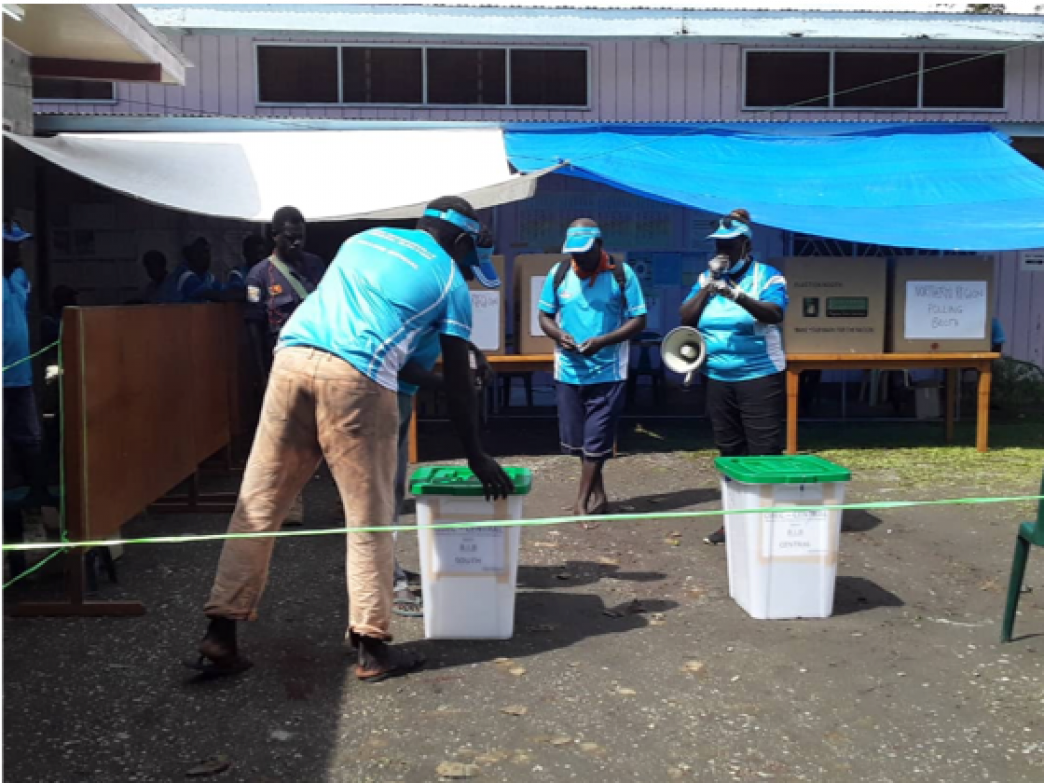
SHARE
In August 2020, the Autonomous Region of Bougainville held the first general election since the region voted overwhelmingly for separation from Papua New Guinea last year. Voters headed to the polls to elect the new president and representatives responsible for establishing the world’s newest independent country. With financial support from USAID, and building on its experience monitoring the 2019 referendum for independence, NDI partnered with the Bougainville Women’s Federation (BWF), which trained and deployed 26 non-partisan citizen observers to 134 polling stations across the autonomous region.
Observers also conducted interviews with community leaders, candidates and election officials to gauge their views on the overall electoral process and collected data on incidents of violence against women, as well as on the implementation of government guidelines on COVID-19 and their impact on women’s electoral participation.
With NDI technical support, BWF analyzed the findings of the election observation data and published the Report on the Observation of the 2020 General Election. Overall women were able to participate freely, although some condemn the patriarchal views that still limit women’s participation in elections: “Cultures and customs are barriers [to women's participation] but in the recent times it has changed, as women have realized they have a role to play as they voted for independence and must participate in the road to independence,” noted an interviewee. As the ongoing pandemic impacted international travel, leading to a very limited international election observation, the need for citizen observers to monitor and report on their findings has become key to promoting election integrity. The role of civil society will remain crucial in Bougainville’s road to peaceful and inclusive negotiations for independence.
The Pacific region has one of the highest levels of gender-based violence in the world. While violence is not the only barrier women face as they seek full and equal political rights, evidence from around the world shows the extent of the threat it poses to democratic values. The issues of election-related violence and gender-based violence (particularly domestic violence) are increasingly subject to discussion in Bougainville; however, very little attention has been given to the link between gender-based violence and the political participation of women. In addition, while the pandemic has compounded gender inequalities and exacerbated the conditions for gender-based violence, BWF’s understanding of how the issue may affect women’s political participation is limited. Monitoring transparency and inclusivity of an electoral process provides an opportunity to gather data on and assess barriers to women’s political participation, including violence and COVID-19. BWF will continue to share findings from the observation with national and international stakeholders, to shine a spotlight on the issue of violence against women in elections and the gendered impact of COVID-19. BWF will use the findings to advocate for gender-sensitive response efforts in future elections, with the aim of developing more credible and inclusive electoral processes.



